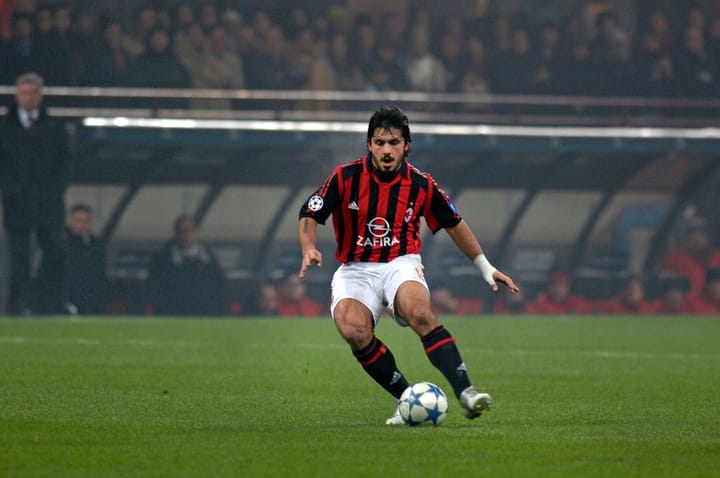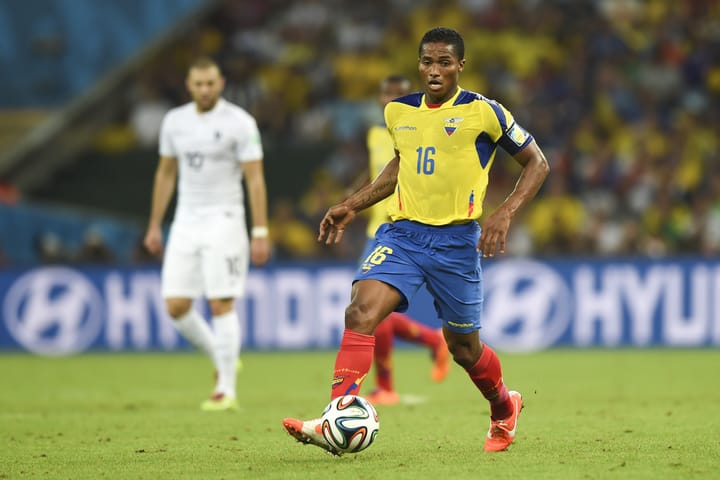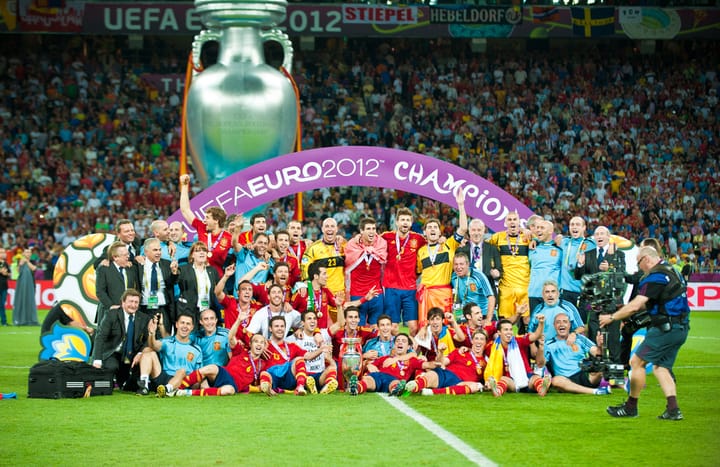Meet the five best players in Irish soccer history
Although soccer is not the number 1 sport in Ireland, they have produced world class soccer players in their history. In this article we highlight five of the best Irish soccer players of all time.

Ireland has a rich soccer history, and throughout the years, the country has produced many great players. While selecting the best five Irish soccer players of all time is no easy feat, several players have left an indelible mark on the sport.
In this article, we highlight five of the best soccer players ever to play for the Irish national soccer team.
Robbie Keane
Born on July 8, 1980, in Dublin, he started playing soccer at a young age. Keane began his professional career with Wolverhampton Wanderers in 1997 and quickly established himself as a prolific goal scorer.
In 2000, Keane made a big move to join Inter Milan, but struggled to break into the first team and was loaned out to several clubs before eventually joining Tottenham Hotspur in 2002. It was at Tottenham where Keane truly made his mark, becoming a fan favorite and scoring 91 goals in 238 appearances.
Keane also had successful spells at Liverpool, Celtic, and LA Galaxy, among other clubs, before retiring from professional soccer in 2018. He is widely regarded as one of the greatest Irish soccer players of all time and holds the record for most goals scored for the Irish national team, with 68 goals in 146 appearances.
Keane was known for his speed, agility, and clinical finishing, as well as his ability to create chances for his teammates. He was also a fierce competitor and a natural leader, and he captained the Irish national team on many occasions.
Paul McGrath
Paul McGrath is widely regarded as one of the greatest defenders to come out of Ireland. He was born on December 4, 1959, in London but grew up in Dublin, where he began his professional career with St. Patrick's Athletic in 1981.
McGrath quickly established himself as a talented and physical defender with a natural ability to read the game and make crucial tackles and interceptions. He was known for his aerial ability, his skill on the ball, and his calmness under pressure, and soon caught the attention of scouts from top English clubs.
In 1982, McGrath joined Manchester United, where he spent seven seasons and became a key player in the team's defense. In 1989, McGrath made a big move to Aston Villa, where he spent seven more seasons and became a club legend. He won the League Cup twice with Villa and was named the PFA Players' Player of the Year in 1993.
McGrath also played 83 times for the Irish national team, including at the 1990 and 1994 World Cups. He was a stalwart of the Irish defense and a leader on and off the field, and he remains one of the most respected and beloved figures in Irish soccer history.
Off the field, McGrath has been open about his struggles with alcoholism and mental health issues and has become an advocate for mental health awareness and addiction recovery. He has written two autobiographies, "Back from the Brink" and "The Autobiography," which detail his struggles and his successes both on and off the field.
Liam Brady
Liam Brady was born on February 13, 1956, in Dublin, and began his professional career with Arsenal in 1973. Brady quickly established himself as a talented and creative midfielder, with an impressive range of passing and a keen eye for goal. He helped Arsenal win the FA Cup in 1979, reach the Cup Winners' Cup Final in 1980, and was named the PFA Players' Player of the Year in 1979.
In 1980, Brady made a big move to Juventus, where he became a key player on a star-studded team that included Dino Zoff and Marco Tardelli. He helped Juventus win the Serie A title in his first and second seasons.
Brady also played 72 times for the Irish national team, where he was a central figure in the Irish midfield and a key playmaker for the team.
Johnny Giles
A central midfielder, Giles won 59 caps for Ireland and was a key player during the 1960s and 1970s. He was born on November 6, 1940, in Dublin, and began his professional career with Manchester United in 1959.
Giles quickly established himself as a talented and versatile midfielder, capable of playing both as a deep-lying playmaker and as an attacking midfielder. He helped United win the FA Cup in 1963 before making a big move to Leeds United.
At Leeds, Giles became a central figure in one of the most successful teams in English soccer history. He helped Leeds win its first First Division title, the League Cup, and the Inter-Cities Fairs Cup and was a key part of a midfield partnership with Billy Bremner that was widely regarded as one of the best in the game.
Giles also played 59 times for the Irish national team, where he was a central figure in the Irish midfield and a key playmaker for the team. After retiring from playing, Giles went on to have a successful career as a manager and pundit. He managed several clubs, including West Bromwich Albion and Shamrock Rovers, and worked as a television analyst for RTE and ITV.
Roy Keane
Roy Keane is widely regarded as one of the greatest soccer players to ever come out of Ireland. Born in Cork on August 10, 1971, Keane began his professional career with Cobh Ramblers before joining Nottingham Forest in 1990. He quickly established himself as a tough-tackling midfielder and helped Forest win the League Cup in 1991.
In 1993, Keane made a big move to Manchester United, where he became a central figure in the team's success throughout the 1990s and early 2000s. He won seven Premier League titles, four FA Cups, and the UEFA Champions League with United, and was also named the club's captain in 1997 until 2005.
Keane was known for his fierce competitiveness, leadership skills, and tenacity on the field. He was a natural leader and a vocal presence in the United dressing room, and was often praised for his ability to inspire his teammates. Keane's passion and commitment to the game made him a fan favorite, but also led to several controversial incidents, including a high-profile falling out with United manager Sir Alex Ferguson in 2005.
In addition to his success at the club level, Keane also played 67 times for the Irish national team, including captaining the team in the 2002 World Cup qualification campaign, before he fell out with coach Mick McCarthy at the World Cup.
After retiring from playing in 2006, Keane has gone on to have a successful career as a manager and pundit, and is widely regarded as one of the most knowledgeable and insightful voices in the world of soccer.




